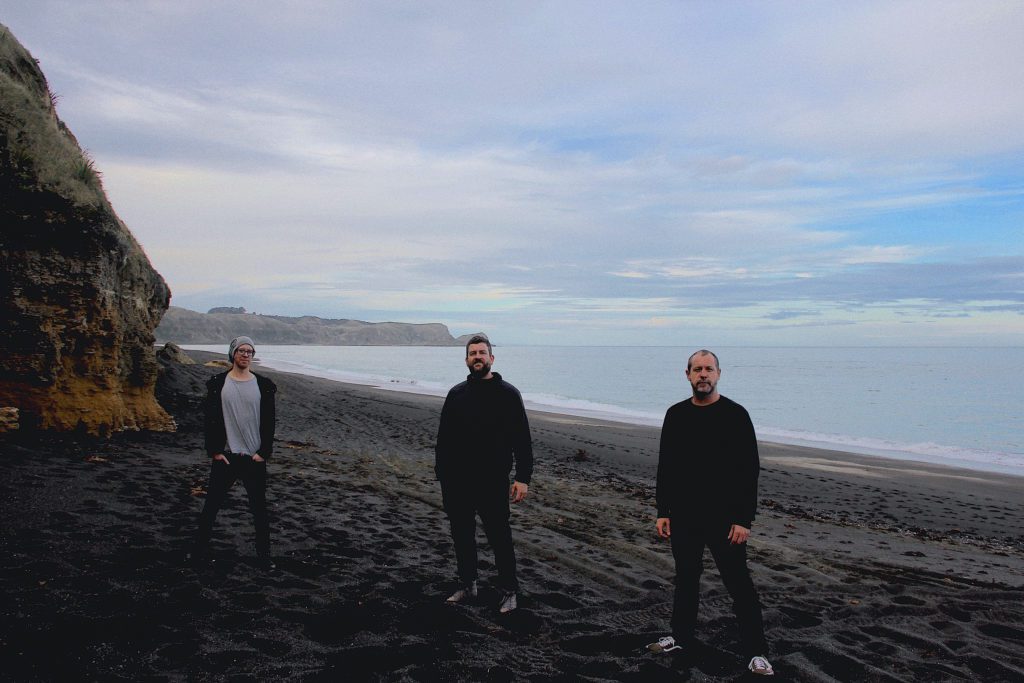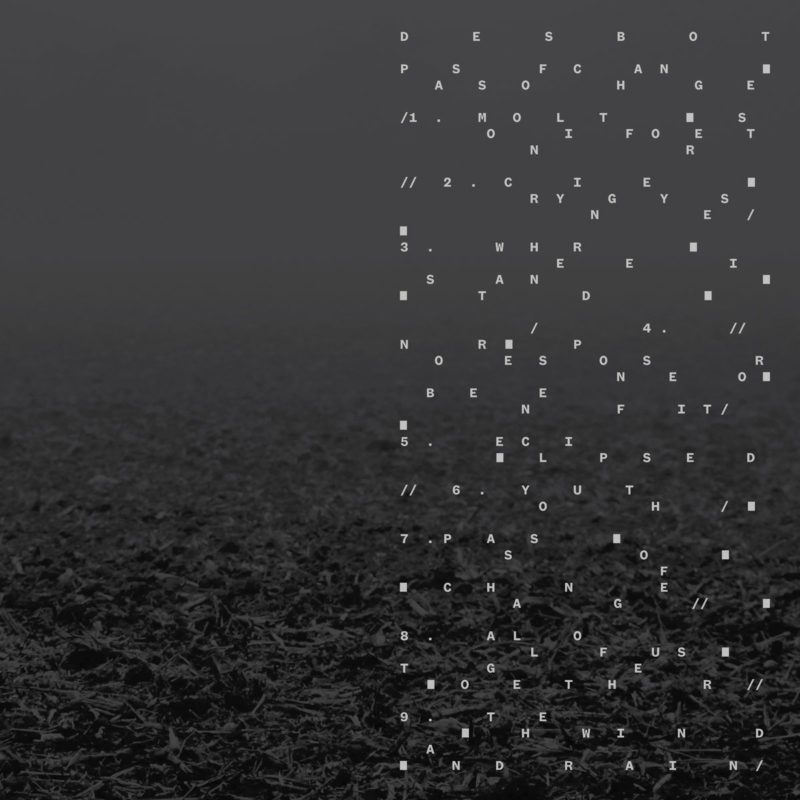I met Maurice Beckett last year after his band Jakob played their incredible album Solace live at The Tuning Fork in Auckland. I sheepishly admitted that I was the one who had once referred to him as a “hairy behemoth” in a review. Beckett just laughed. He was great to chat to, super laid back and didn’t take things too seriously.
Regular Will Not Fade readers should need no introduction to Jakob, the mighty post-rock trio from Hawkes Bay. Desbot is another post-rock trio with Beckett on bass, but despite sharing these similarities, they are very much a different beast.
Desbot released their debut album Pass of Change back in October, and I’ve been thrashing it the entire time.
Something I love about Desbot’s music is the feeling of momentum that each song exudes. The drums [play by Tom Pierard] are often driving, especially with open hi-hats, bright crashes and harsh china cymbals – big explosive, washy sounds. And the bass – often the star – is usually pulsing, throbbing, compelling us to nod our heads and tap our feet – to feel the music and the hypnotic energy it radiates. One of the best examples of this is the breakdown in “Eclipsed” – crushingly heavy as the band pummels us with dense slabs of sound that they conjure up.
Rounding out the trio is Nick Blow on keys. Most rock music is centred around guitar riffing, so the omission of guitar is enough to make this mix unique. The keys here are more ephemeral, often just colouring the feel and creating the mood with sci-fi swells and interesting effects. It’s a great move, being able to draw on countless crazy synthetic sounds that keyboard soundbanks can offer.
It’s an interesting dynamic: the rhythm section locking in tight to push the music, with keys plucking flavouring from the stratosphere to make it all interesting. And while the structure can feel linear and a bit simple, it is never boring. The music is often incredibly heavy and distorted, yet somehow feels hopeful and not oppressive.
The band explores texture and tonality, playing with space and sounds to bring a fresh, otherworldly feel to a lot of the songs on the album. They use so many interesting effects and inorganic timbres that it borders on industrial at times, with odd mechanical screeches and whirrs that make me envision a robotic production line, or even a futuristic spacecraft. Listen to the fantastic reverberating drumming in “No Response or Benefit”, or the warning siren sound that phases out slowly during the outro of “Pass of Change”.
It’s possible that this experimental feel arises from their writing process. Drummer Pierard shares that the trio all wrote and demoed ideas at home individually during lockdown periods – which pushed them to be more creative – and delays caused by the pandemic forced them to slow down and really take the time to craft and hone these songs and add more depth to the music..
In short, Pass of Change is great. A solid album that I happily keep returning to. I’m really hoping that they come to Wellington at some point this coming year because I bet their music sounds absolutely monstrous played live through a decent speaker system.




